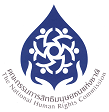The Thai-US FTA and its impacts on Thai Jasmine rice and biological resources

Unofficial Translation
Statement
The Thai-US Free Trade Agreement and its Impacts on
Thai Jasmine Rice and Biological Resources
The National Human Rights Commission of Thailand (NHRC) expressed its concern over ongoing negotiations on the Thai-US Free Trade Agreement, particularly on the issues of intellectual property rights. The Agreement may affect the future of Thai fragrant jasmine rice and biological resources base in Thailand, and it can also infringe local farmers’ right to get access to local natural resources as well as national sovereignty.
The result of studies by the NHRC’s Sub-Commission on Natural Resources and Intellectual Property Rights indicated that the US will demand Thailand to patent all life forms and to provide patent or sui geniris (unique) protection for the ownership of plant varieties by joining the International Convention for the Protection of New Varieties of Plants (UPOV), along the lines of the US trade agreements with Chile, Singapore and Morocco. If Thailand were to accept it, it would allow the American plant genetic researchers and companies to patent over any new variety of rice developed from Thai jasmine rice. Foreigners can also utilise biological resources in Thailand and seek patent protection without licensing or royalty payment to share benefits with Thailand. Furthermore, it will affect Thai farmers’ rights and ways of living. For example, farmers will not be allowed to keep patented seeds for cultivation in the next season or exchange them with neighbours.
If Thailand accepts the US proposal pertaining to intellectual property protection in the Free Trade Agreement, the existing laws will be required for amendments to comply with, which include the Plant Varieties Protection Act B.E. 2542 (1999) and the Patent Act B.E. 2535 (1992). Such amendments will curtail rights and profit which should be obtained by local farmers and communities for the benefit of mega companies in the United States instead.
In such light, the National Human Rights Commission would like to propose standing points of Thailand, especially for the next round (fourth round) negotiation during 11-16 July 2005 in the state of Montana as follows :
1. The Thai government must maintain a strong position not to accept the US patent regime, which includes patenting of life forms, ratifying UPOV, and replacing geographical indication with trademark.
Complying with the US patent regime not only causes damage to jasmine rice breed and its market, but also affects biological resources and all other inherited traditional knowledge within the country. Moreover, patenting life forms will yield benefits not only to the US but also other industrialised countries such as the European Unions countries or Japan.
Therefore, the agreement should not go beyond the World Trade Organization’s agreement on intellectual property rights or TRIPS. At present, there are still alternatives to protect intellectual property over plant varieties other than patent law and UPOV. In addition, Thai jasmine rice and other agricultural products are very likely to be protected by geographic indications of source, similarly to wine and liquors in Europe.
2. The Thai government must play a pro-active role in the protection of Thai jasmine rice, biological resources and traditional knowledge through :
– Calling for the US government to undertake any necessary measure to protect intellectual property of Thai jasmine rice. Before concluding the FTA, the US rice trading companies must be prohibited to sell other rice varieties under the name of "jasmine rice." It is the same practice which the US government previously demanded from Thailand to protect the US copyrights of films, musical works and computer software.
– Calling for the US government to recognise Thailand sovereignty over national biological resources. Permission must be sought for any activity to get access to and utilise national biological resources and traditional knowledge. A profit-sharing agreement must be made in accordance with the Plant Varieties Protection Act B.E. 2542 (1999) and the Act on Protection and Promotion of Traditional Thai Medicinal Intelligence B.E. 2542 (1999). In this regard, the protection of intellectual properties of both sides must specify the origins of related biological resources and traditional knowledge in addition to requirements under which a patent may be obtained.
– Concerning Genetically Modified Organisms (GMOs), the government must forcefully affirm Thailand’s legitimate authority, in accordance with the Convention on Biological Diversity (CBD), to adopt precautionary approach by prohibiting the importation of GMOs products in case of uncertain health safety and environmental impacts.
It is fully legitimate for Thailand to prohibit GMOs experiments undertaken by aliens within the country, especially when there are risks of contamination and diffusion to other cultivated fields. The GMOs experiments in Thailand must comply with the law concerning biological safety which clearly provides farmers’ rights protection and compensation.
National Human Rights Commission of Thailand
14 June 2005





